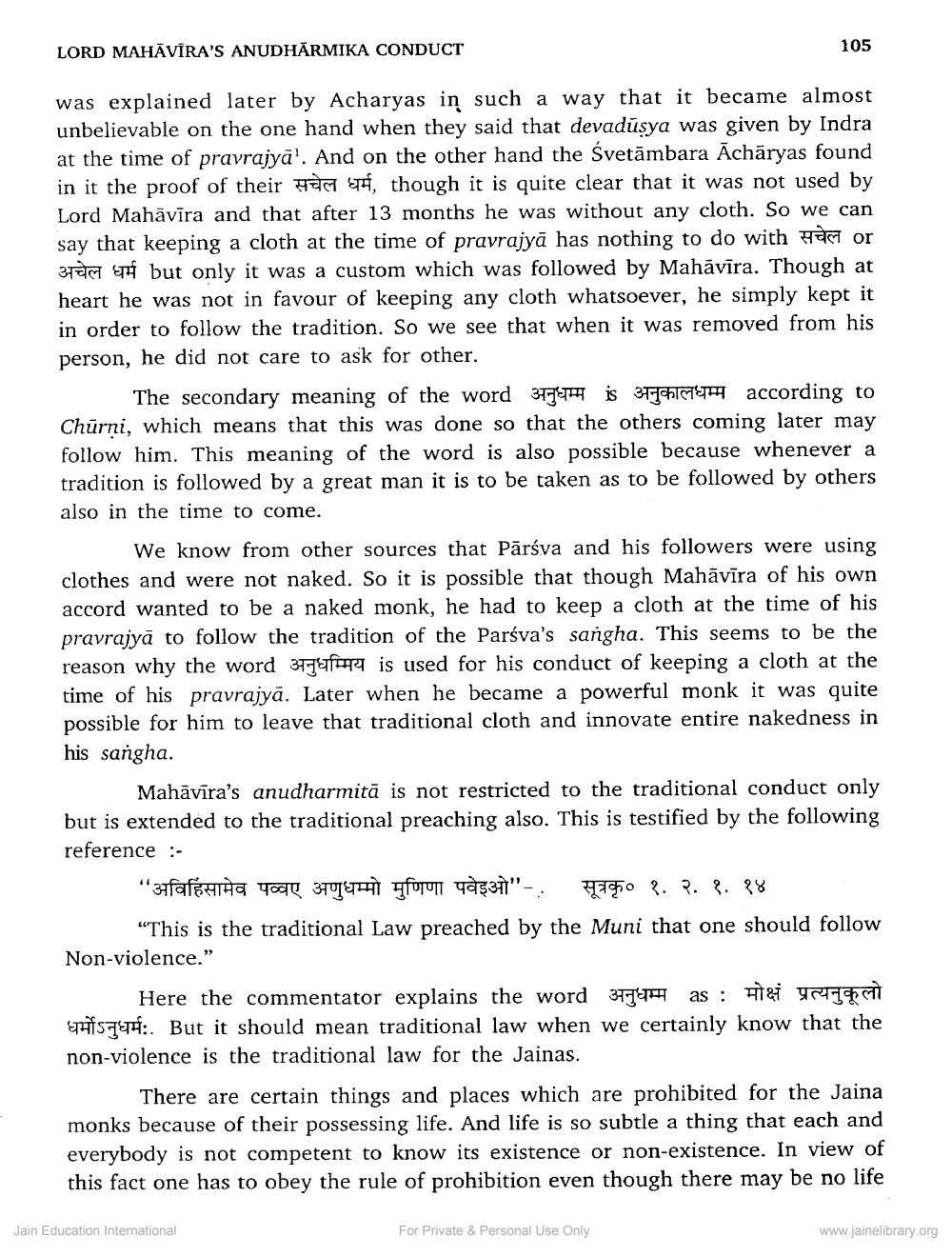________________
LORD MAHĀVĪRA'S ANUDHARMIKA CONDUCT
was explained later by Acharyas in such a way that it became almost unbelievable on the one hand when they said that devaduşya was given by Indra at the time of pravrajya'. And on the other hand the Svetambara Acharyas found in it the proof of their 4, though it is quite clear that it was not used by Lord Mahāvīra and that after 13 months he was without any cloth. So we can. say that keeping a cloth at the time of pravrajya has nothing to do with wor are but only it was a custom which was followed by Mahāvīra. Though at heart he was not in favour of keeping any cloth whatsoever, he simply kept it in order to follow the tradition. So we see that when it was removed from his person, he did not care to ask for other.
105
The secondary meaning of the word अनुधम्म is अनुकालधम्म according to Churni, which means that this was done so that the others coming later may follow him. This meaning of the word is also possible because whenever a tradition is followed by a great man it is to be taken as to be followed by others. also in the time to come.
We know from other sources that Pärśva and his followers were using clothes and were not naked. So it is possible that though Mahavira of his own accord wanted to be a naked monk, he had to keep a cloth at the time of his pravrajya to follow the tradition of the Parsva's sangha. This seems to be the reason why the word af is used for his conduct of keeping a cloth at the time of his pravrajyä. Later when he became a powerful monk it was quite possible for him to leave that traditional cloth and innovate entire nakedness in his sangha.
Mahāvīra's anudharmitä is not restricted to the traditional conduct only but is extended to the traditional preaching also. This is testified by the following reference :
'अविहिंसामेव पव्वए अणुधम्मो मुणिणा पवेइओ"-. सूत्रकृ० १. २. १. १४
"This is the traditional Law preached by the Muni that one should follow Non-violence."
:
Here the commentator explains the word अनुधम्म as मोक्षं प्रत्यनुकूलो is. But it should mean traditional law when we certainly know that the non-violence is the traditional law for the Jainas.
There are certain things and places which are prohibited for the Jaina monks because of their possessing life. And life is so subtle a thing that each and everybody is not competent to know its existence or non-existence. In view of this fact one has to obey the rule of prohibition even though there may be no life
Jain Education International
For Private & Personal Use Only
www.jainelibrary.org




